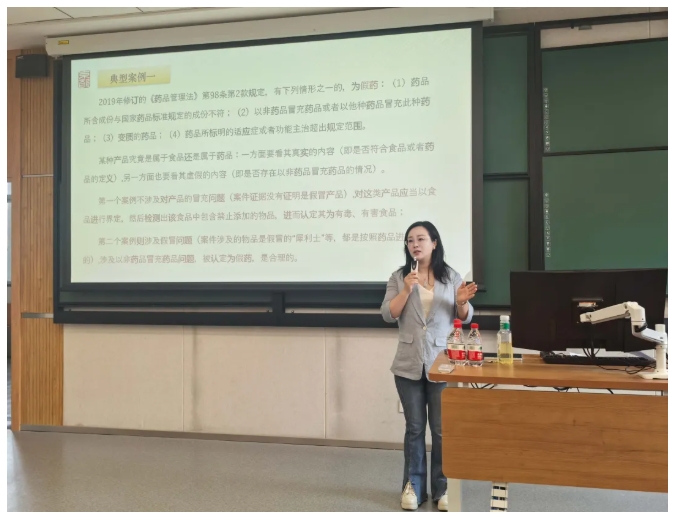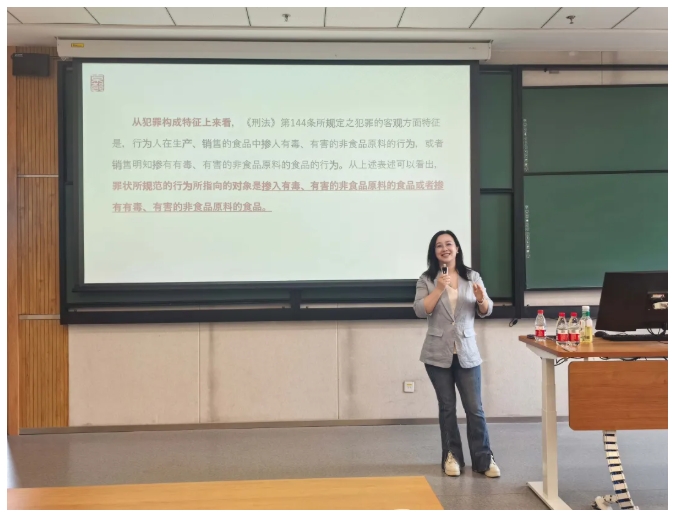Recently, at the invitation of Beijing Technology and Business University, Zhang Sijia, deputy director and secretary-general of the King&Capital Food and Drug Law Research Center, gave a special lecture on “Issues Related to Food Crimes from a Lawyer's Perspective” at the university's Liangxiang campus. The lecture was highly regarded by the university and warmly welcomed by the students. Xu Yang, party secretary of the Law School, and Chen Dun, dean of the Law School, attended the lecture, which was hosted by Hu Bingzi, vice dean of the Law School.

Drawing on her extensive practical experience and a wealth of judicial cases, Zhang Sijia provided an in-depth yet accessible explanation, offering professional guidance for understanding and addressing food-related legal issues. The lecture focused on “Discussing Issues Related to Food Crimes from a Lawyer's Perspective,” approaching the topic from two main angles: substantive theory and practical cases. She primarily addressed five key issues: “The Determination of Accomplices in Food Crimes,” “Sales Amount: The Determination of Sales Price and Sales Volume,” “Disputes Over the Interpretation of ‘Sales,’” "The Regulatory Definition of ' Regulatory Definitions of ‘Toxic or Harmful Non-Food Ingredients’,“ and ”Judicial Determination of ‘Food Containing Toxic or Harmful Non-Food Ingredients.’" The lecture employed a combination of legal text interpretation, extensive case analysis, and legal reasoning to focus on the provisions of the Criminal Law and judicial interpretations in the food sector.

Additionally, the lecture addressed the characteristics of food-related crimes, discussing effective defense strategies for lawyers handling such cases. It emphasized the importance of participating in food-related crime governance from a lawyer's perspective and with a defense-oriented mindset, focusing on the overall evaluation of the social harmfulness of the behavior, the determination of prior unlawful acts, and the substantive evaluation of the violation. It also delved into the challenges of distinguishing between administrative violations and criminal offenses in the judicial determination of food-related crimes, exploring the key points in grasping the boundaries between administrative and criminal liability in food-related crimes.
This lecture was the sixth in the university's “Food Safety and Cosmetics Regulation Law Special Topics” lecture series, which aims to “break traditional disciplinary boundaries and deeply integrate professional knowledge with legal practice.” It integrates legal and food science knowledge, analyzes typical cases and judicial practice challenges, helps students understand the application of legal provisions in real-world scenarios, broadens their professional horizons, and recognizes the need for multidisciplinary collaboration in food crime governance.
This lecture not only brought professional knowledge from a practical perspective to the students, but also further strengthened the in-depth cooperation between the King&Capital Food and Drug Law Research Center and Beijing Technology and Business University. In the future, both sides will further strengthen exchanges and cooperation to jointly explore new models of combining legal education and practice.



